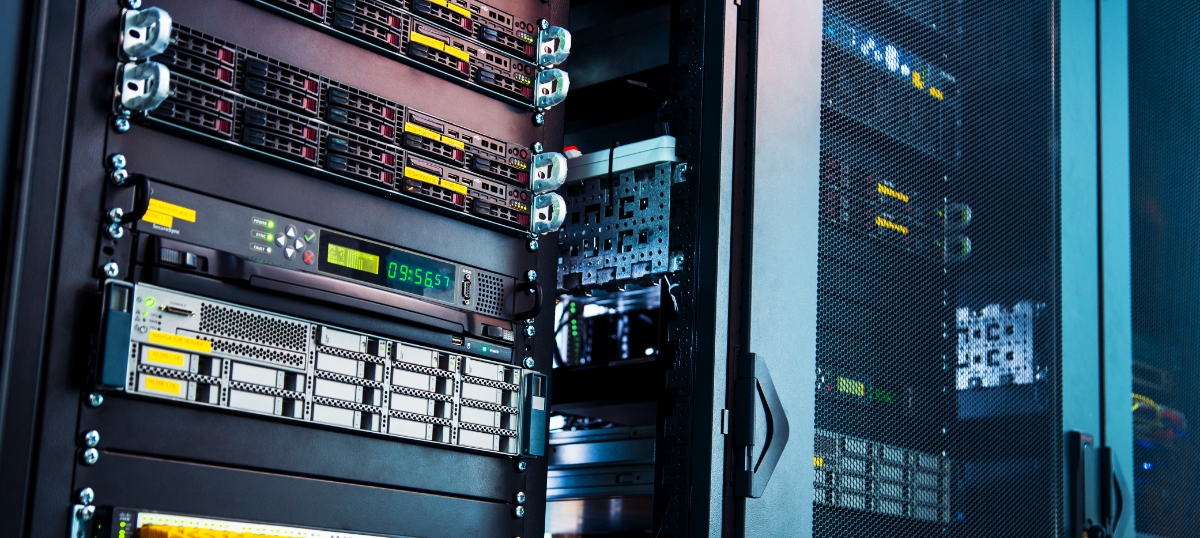14/12/2022
Cloud vs In-House Servers: What is the Best Choice?
Choosing how to store your IP CCTV footage has now become a choice between the traditional method of in-house servers and the relatively new evolution of ‘cloud storage’. Each has specific advantages and risks. What works for you today, might not suit your needs tomorrow, and each comes with a different cost structure. Security, control, and cost all factor into this major decision, however, it’s not always easy to compare your options.
Let’s look at some factors that will help you decide whether to go with a cloud service provider or in-house server options. Like many topics in technology, this one is constantly changing as new products and services become available.

Cloud service providers offer a wide array of products and services to meet the needs of businesses of all sizes. They make it easy to get started and each touts their stability, scalability, and security for your business. One of the biggest advantages of going with a cloud service is the flexibility to meet your changing demands without a big investment in hardware. The cloud works well for businesses whose requirements for storage are constantly changing.
Pros of Cloud Servers
- Scalability – The cloud allows you to easily and quickly add more storage, more memory, and more computing power. Adding any of this to an existing server is usually a few clicks away and can be provisioned in hours instead of days or weeks compared to utilizing your own hardware.
- Mobile Connections – Storing data or running applications from the cloud makes it easy for employees to connect and work from anywhere without the complexities of VPNs. The cloud also makes it easy to backup all of these devices, no matter their location.
- Security – This is a controversial topic because you’re relying on someone else to secure access to your data, but cloud service providers have the expertise to ensure your data is safe. Companies like Amazon, Google, and Microsoft understand their reputation is at stake.
- Low Capital Expense – You’ll still need to purchase software licenses, but your investment in hardware is greatly reduced by moving to the cloud. This allows small companies to get up and running quickly with a large cash outlay.
Cons of Cloud Servers
- Services Outages – Every service provider has them, even Amazon. And when they go down, so does access to your applications and data that are not stored. Outages don’t happen frequently, but they cause major disruption when they do.
- Limited by Internet Speeds – Moving large files back and forth over the internet can be a lot more time consuming than doing the thing over a fast local connection. This is the case for those working on large 4K video files.
- Time-Consuming Data Recovery – The cloud makes it easy to backup data, but restoring large amounts of data will take a lot of time even over a fast internet connection.

Hosting your own servers in-house might sound like an old-fashioned way to run your storage requirements, but it is still a viable option for many businesses. If you demand absolute control over your data, this is the way to go. Just understand that going this route demands a larger initial investment in hardware and IT expertise.
Pros of In-House Servers
- Total Control – For some, the idea of giving up physical control of a server is not an option. Some environments demand immediate access to the physical server and hosting it in-house is the best option for them.
- High Performance – HPC computing puts large demands on both the computing power and storage requirement of a server. Many workloads are processed faster and more efficiently in-house especially if your workload requires bleeding-edge hardware.
- Compliance – Regulatory and compliance laws may not allow certain types of sensitive data (medical, government, financial) to be stored in the cloud. Cloud encryption options are opening up more options in this area, but it’s still a work in progress.
Cons of In-House Servers
- Up-front Investment – This can be substantial for large companies and crippling for smaller companies without an IT expert on staff. Leasing servers can help offset some of the costs, but you still need someone on the ground who can manage your data center.
- Space Considerations – Servers take up space, require a lot of power and generate heat. Servers that run your business need a secure location, power, and cooling in order to run effectively and efficiently.
Conclusion
Cloud storage specifically related to storing CCTV images is in its early stages and until internet speeds in the UK improve and become more stable we would only recommend cloud storage for relatively small applications where the security risk is low.
For larger and more security sensitive applications we will continue to advise customers to host on site recording servers.
